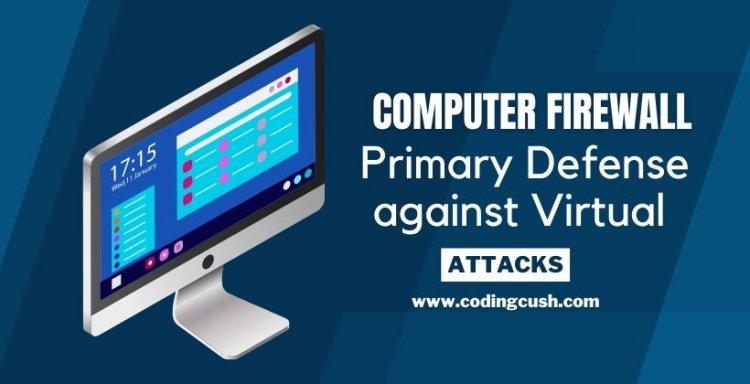A Computer Firewall is Your Primary Defense against Virtual Attacks
If you have any personal information on your computer at all and access the Internet

If you have any personal information on your computer at all and access the Internet it is vitally important that you consider the benefits of a computer firewall. Many people lock their homes, lock their cars, keep a watchful eye on their children, and yet leave their bank accounts, personal information, and all kinds of other information vulnerable and exposed through their personal computers.
Virtual Attack
A virtual attack can be just as devastating financially and emotionally as someone breaking into your home. They are allowed access to secrets you may have shared in confidence with online friends or even offline friends that you correspond with online, they will have passwords for financial and banking accounts, they will know where you buy your coffee; they can learn where your children go to school. The information we have on our personal computers is staggering in terms of personal security nightmares and yet so many people take no steps to secure this information from prying eyes by investing in a simple computer firewall.
The amazing thing is that you can even find free computer firewalls available online if you know where to look. I highly recommend paying for a computer firewall though if you have little knowledge of the inner workings of your computer. If you’re going to secure your family's secrets you may as well invest in a very good program with constant updates in order to do so.
A computer firewall isn’t just a nice thing to have on your computer; it is a vital line of defense for you and your family. Keep this in mind when choosing the best computer firewall for you. Remember you want to have a service that will provide updates and keep up with evolving technology that would harm your computer or steal your personal information.
Which is the best firewall for protection?
Depends on your budget and whether it’s for personal or business use. There are a number of excellent firewalls. “Best” would be the one that most closely meets the particular network needs of a client.
But.. I would suggest…
- Virtually all firewall appliances are better than software firewalls (including Windows Defender).
- If a firewall doesn’t have UTM (Unified Threat Management) then you should look elsewhere.
- If virus definitions are not updated at least once a day by the vendor then look elsewhere.
- Be careful sizing an appliance based on WAN network speed. All appliances will slow down substantially, when required to provide UTM. Like less than half the throughput typically.
- Oversize; rather than undersize the firewall.
A seriously robust firewall for Linux is ‘iptables’ using iptables rules you can manipulate traffic to your heart’s content. It supports accepting, dropping, rejecting, mangling traffic and more. This software is so robust that a device can be made to act as a router using only iptables and supporting kernel modules.
Just about every Linux firewall utility uses iptables as the back end for traffic manipulation as it is the most common. There was also ipchains, which are older and have been superseded by iptables.
